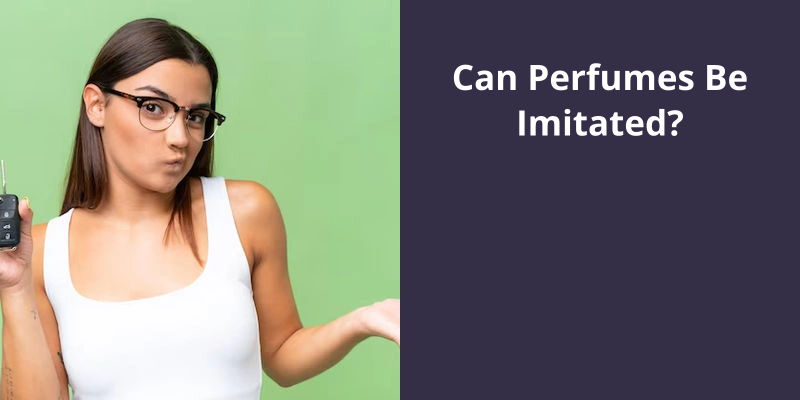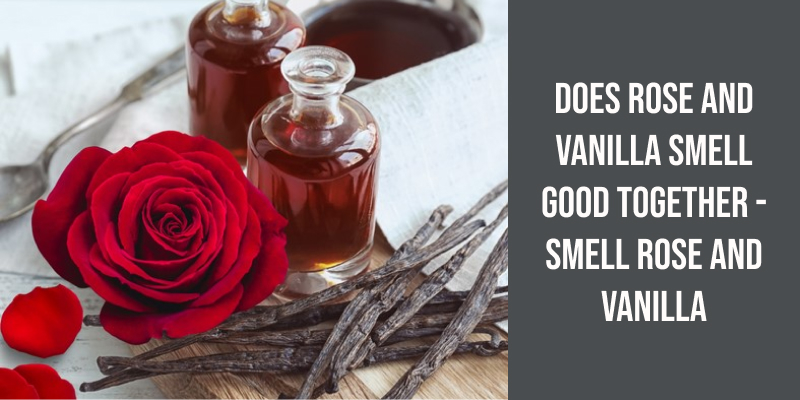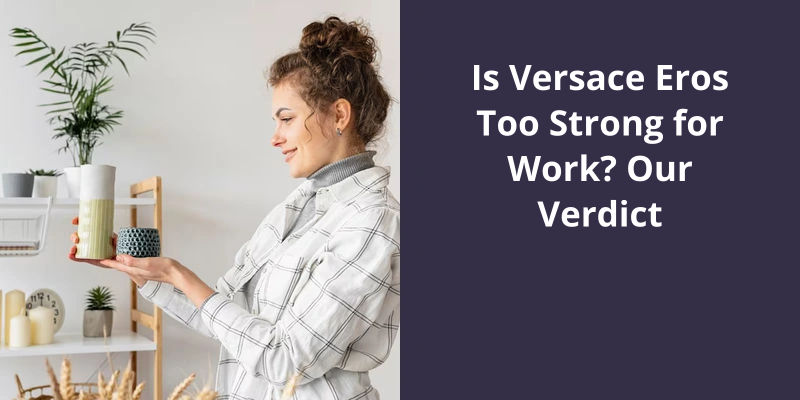Can perfumes be imitated? The allure of a luxurious and intoxicating fragrance can be impossible to resist. Imitation perfumes, while easily manufactured, don’t possess the same quality or scent as their authentic counterparts. Thus, it becomes crucial to understand the signs of fake perfume in order to make an informed and conscious decision. To avoid wasting your hard-earned money on subpar imitations, let’s delve into the realm of perfumery, unravel the art behind creating a captivating scent, and explore the telltale indicators of an imitation fragrance.

Are Fake Perfumes Just as Good?
Imitation perfumes, often touted as an affordable alternative to luxury brands, may seem tempting at first glance. However, it’s important to understand that these imitations are rarely able to match the quality and allure of the real deal. One noticeable difference lies in the ingredients used. Fake perfumes generally rely on cheaper alternatives, compromising on the authenticity and complexity of the fragrance.
Safety is another concern when it comes to counterfeit perfumes. Authentic perfumes undergo rigorous testing to ensure they conform to safety standards, thus posing no harm when used as directed.
When considering the purchase of a perfume, it’s important to prioritize quality and safety. Investing in a genuine perfume guarantees both satisfaction and peace of mind, ensuring a fragrance experience that’s truly exceptional.
The Dangers of Counterfeit Perfumes: Exploring the Potential Health Risks and Harmful Ingredients Found in Fake Perfumes.
The dangers of counterfeit perfumes aren’t to be underestimated. These imitations not only pose a threat to your wallet but also to your health. Fake perfumes are often made with low-quality ingredients that can cause skin irritation, allergic reactions, and even respiratory problems. Some counterfeit perfumes contain harmful substances such as methanol, which can have detrimental effects on your health when applied to the skin or inhaled. Furthermore, these imitations are unlikely to undergo the same rigorous quality control measures as genuine perfumes, meaning there’s a higher chance of contamination or the presence of toxic substances. Protect yourself by purchasing perfumes from reputable sources and avoid buying from unauthorized retailers or suspicious online platforms.
While the art of perfumery is often celebrated for it’s creativity and distinctiveness, there are times when one might come across a fragrance that’s remarkably similar to another beloved scent. This gives rise to the intriguing possibility of cloning perfumes. Surprisingly, the act of creating a perfume clone is entirely legal, primarily due to the fact that the scent itself can’t be patented. However, it’s crucial for companies involved in the cloning process to take precautions and differentiate themselves from the original by using different packaging, brand names, and bottles.
Can You Clone a Perfume?
The question of whether perfumes can be imitated has been a topic of interest for many fragrance enthusiasts and consumers alike. In the world of fragrances, where scents can evoke memories and emotions, it’s no wonder that people may seek to replicate the scent of a beloved perfume. However, can you truly clone a perfume?
This is primarily because a perfume smell can’t be patented. Unlike inventions or innovative processes, fragrances don’t fall into the category of intellectual property that can be protected by patents. Therefore, as long as a company cloning a perfume refrains from using the same bottle, brand name, and packaging as the original, it’s generally considered legal.
Source: Why Perfume Clones Are Legal and a Great Options
Reputable perfume companies strive to ensure their loyal customers understand that recreating a scent is an intricate process that can’t guarantee an exact duplicate. Although the resulting fragrance may closely resemble the original, it’s important to acknowledge that customers are purchasing a scent that’s nearly identical but not the exact replica. This emphasis on customer satisfaction and transparency plays a significant role in maintaining trust and loyalty within the industry.
Can You Recreate a Scent?
Can perfumes be imitated? This is a question that’s intrigued many fragrance enthusiasts and curious minds alike. While it’s true that a resulting scent can’t be exactly duplicated, the art of perfumery has advanced to such an extent that reputable perfume companies can create fragrances that are nearly identical to the original.
Recreating a scent is a complex process that involves a deep understanding of the fragrances composition and the ability to source and combine the right ingredients. Perfumers spend years honing their craft, studying the intricacies of fragrance notes and experimenting with blends to create unique scents. This expertise allows them to create perfumes that aren’t only similar to the original but also satisfying to their client base.
Reputable perfume companies go to great lengths to ensure that their loyal customers understand the nature of scent duplication. They’re transparent about the fact that purchasing a fragrance similar to a well-known brand doesn’t guarantee the original fragrance but a scent that’s nearly indistinguishable from it. This level of honesty is crucial in maintaining the trust and satisfaction of their customers.
While there are imitations and knock-offs in the perfume industry, renowned perfume houses strive to differentiate themselves through their commitment to quality and creativity.
It’s important to note that the process of creating a perfume isn’t a simple replication of an existing scent. Rather, it involves the artistry and expertise of a perfumer who can interpret a fragrance and recreate it in their own way. This artistic interpretation ensures that the resulting scent isn’t just a carbon copy but a unique creation that captures the essence of the original.
When it comes to creating replica perfumes, the process often involves a combination of essential oils, fragrances, and carrier oils. However, it’s important to note that these ingredients are typically synthetic rather than natural. The blending of synthetic essential oils and fragrances plays a crucial role in replicating the scent of high-end perfumes. Additionally, carrier oils are used to stabilize and dilute the fragrance ingredients, ensuring the final product is ready for use.
How Do People Make Replica Perfumes?
People who make replica perfumes often mix a concoction of essential oils, fragrances, and carrier oils to create a product that closely resembles the original scent. The key to imitating a fragrance lies in the careful selection and blending of these ingredients. Instead of using natural essential oils, most counterfeit perfume makers opt for synthetic options due to their lower cost and easier availability.
Synthetic essential oils are chemical compounds created in laboratories, designed to mimic the scent of natural oils. These artificially produced oils allow counterfeiters to recreate the aroma of highly sought-after perfumes without using the expensive and sometimes rare natural ingredients. Additionally, synthetic fragrances are used in imitation perfumes, ensuring an accurate replication of the original scent.
Conclusion
By staying knowledgeable about the authenticity of perfumes, individuals can ensure that they’re investing in genuine and enduring fragrance experiences that deliver the desired scent and quality.





